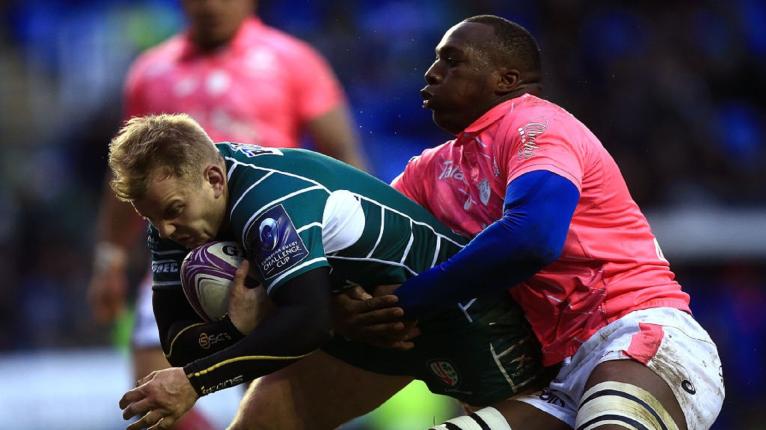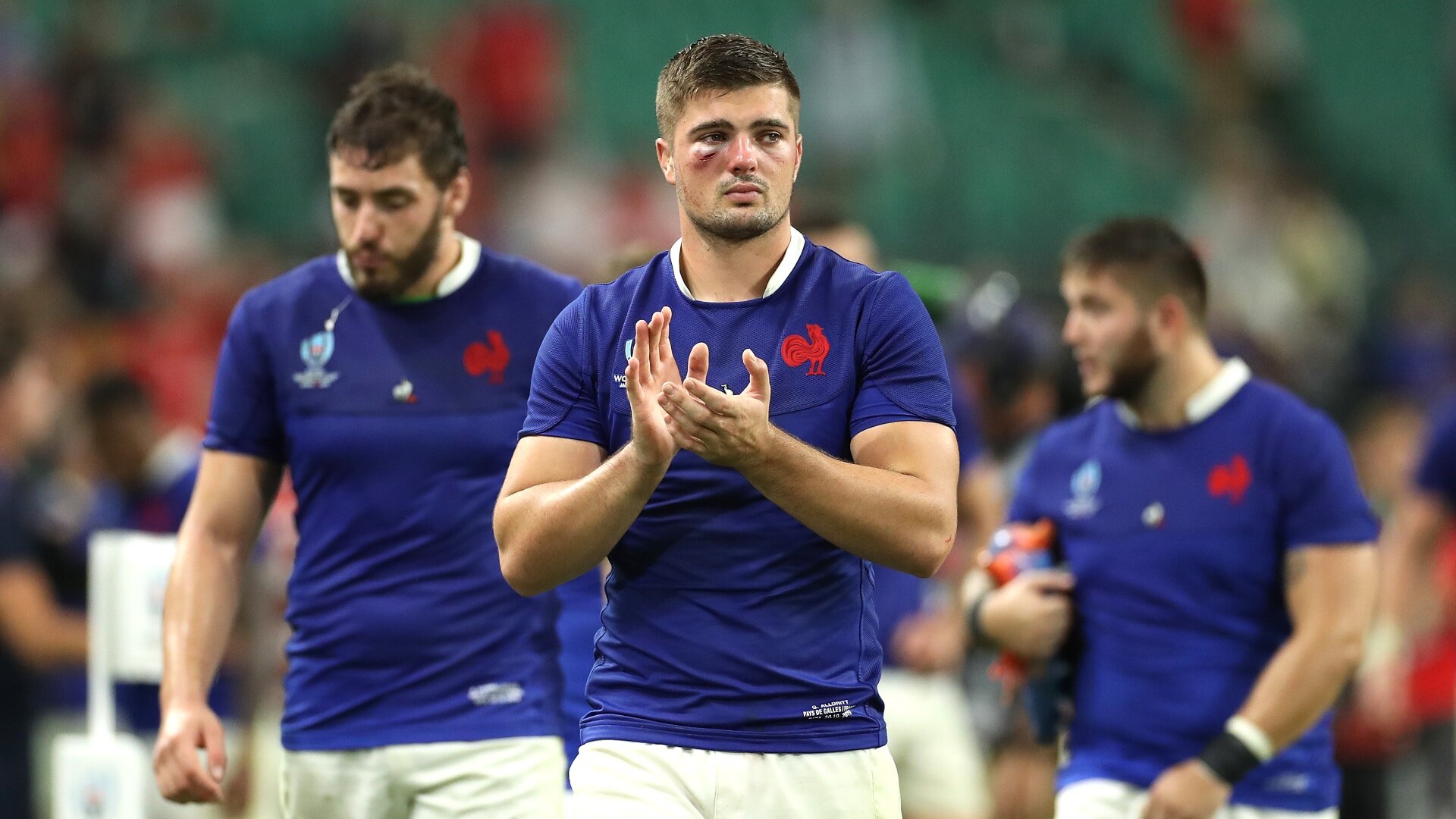No side faces a 'boom or bust' Six Nations as much as France

We are on the eve of a new era in French rugby and that is something which should excite rugby fans the world over, let alone the avid followers of the Six Nations.
New France head coach Fabien Galthié has wasted no time putting his own stamp on the side and there is a youthful element to the squad that the former Stade Français, Montpellier and Toulon coach has assembled.
He named a 42-man squad earlier this month with a lot of fresh faces and plenty of them have remained in the group that was narrowed down to just 28 earlier this week. Sentiment certainly hasn’t hindered Galthié’s approach to returning Les Bleus to the top of the international table.
Potential debuts could be beckoning for Montpellier’s Mohamed Haouas, Racing 92’s Boris Palu, Lyon’s Dylan Cretin and Clermont’s Alexandre Fischer in the pack, where only Bernard Le Roux and Jefferson Poirot boast over 30 international caps. Long-time captain Guilhem Guirado has retired from international rugby and his leadership role is taken on by Charles Ollivon.

The pack also boasts promising talents Sekou Macalou, Demba Bamba and Grégory Alldritt among others, and Le Roux is the only player over the age of 30 in the group. In fact, the average age of the front and back rows is just 23.9 years. The quartet of Selevasio Tolofua, Cameron Woki, Jean-Baptiste Gros and Kilian Geraci were part of the cut down from 42 to 28 and remain intriguing options moving forward that would only further lower that average age.
Continue reading below…
Watch: Inside the Barbarians
The dynamic scrum-half combination of Antoine Dupont and Baptiste Serin remains, with further youth outside of them in the forms of the 21-year-old Mathieu Jalibert and the 20-year-old Romain Ntamack, as France attempt to build quality and depth at a position that has so often been their Achilles’ heel. Given that the likes of Arthur Coville and Louis Carbonel both missed out only goes to show the strength that the French side could be able to build in the half-backs moving forward.
There is a bit more familiarity in the midfield, where Gaël Fickou – the only member of the squad with over 50 caps – and Virimi Vakatawa both retain their places, although they are joined by the 20-year-old Arthur Vincent. The former U20 Six Nations and World Rugby U20 Championship winner has impressed with his distribution skills at outside centre for Montpellier and offers a contrasting threat to the ball-carrying ability of Fickou and Vakatawa.
Finally, the back three has undergone a remodel, with Anthony Bouthier and Gabriel Ngandebe, both of Montpellier, joining Teddy Thomas, Damian Penaud and Vincent Rattez in one of the most exciting wing and full-back groups in the Six Nations. With Bouthier the only listed full-back in France’s squad release, it would not be surprising to see him flanked by Penaud and Thomas come the tournament opener against England.
Managing director Mick Hogan isn’t blaming @Saracens for the trauma @FalconsRugby are enduring in the Championship… but he tells @heagneyl it still leaves a sour taste belatedly finding out a @premrugby rival cheated last seasonhttps://t.co/CfYiZmovYZ
— RugbyPass (@RugbyPass) January 25, 2020
Exciting talent Gervais Cordin and full-back Kylan Hamdaoui both failed to make the cut down to 28, although it was the omission of Toulouse full-back/fly-half Thomas Ramos that raised the most eyebrows, with Galthié unafraid to ruffle feathers as he begins to mould the side in his image.
Overall, it’s a squad that’s beginning to lean heavily on the uptick in fortune that the France U20 side have enjoyed in recent years, with the likes of Ntamack, Vincent, Jalibert and Bamba having been particularly key to those successes, whilst Macalou and Penaud were the standouts in the era just prior to France achieving a dominance at the age-grade level.
Another theme is the mobility of the back row in particular, with very little suggestion that Les Bleus will attempt to attritionally slog it out with opponents over the next two months and will instead attempt to take the game to their rivals. The group doesn’t lack for power through the likes of Ollivon, Cretin and Alldritt, but the duo of Macalou and Fischer bring mobility and an ability to play at a higher tempo than the French pack has been able to in recent years.
The Scottish veteran is taking a punt on the ProD2 https://t.co/r3mBFFA01n
— RugbyPass (@RugbyPass) January 25, 2020
If Galthié can unlock Macalou’s unquestioned ability on the international stage and keep him engaged and working hard to improve, he could be looking at one of the very best rugby players on the planet. A combination of Macalou, Alldritt and Ollivon is one that no rival team would want to face and that’s before we even begin to contemplate the prospect of Jordan Joseph one day joining the group and realising his frightening potential.
There is a commitment to a newer and younger hand at the tiller, too, as Galthié is set to choose between Jalibert and Ntamack at 10, with a number of the latter’s caps having come thus far in centres. There is no Ramos as a safety blanket and there is no veteran presence of Camille Lopez. At no position does it a signal more of a new era for France than at fly-half.
There looks as though there will much less change in the backline outside of 10, though, with Fickou, Vakatawa, Penaud and Thomas all likely to continue in their roles from the Rugby World Cup. In all honesty, despite French rugby’s relatively dismal return in terms of results of late, why would you move on from a quartet as talented as that? Vakatawa repeatedly shows that he can unlock the tightest of defences with his enviable array of attacking skills, whilst Penaud’s transition to the wing has been one that has paid off handsomely for Les Bleus, even if some still suggest outside centre is his best position.
This marks the beginning of not only a four-year Rugby World Cup cycle for France, but a four-year Rugby World Cup cycle that culminates in a tournament on home soil. The FFR will know full well that French rugby’s performances on the field have not been good enough in recent years for a union boasting their financial resources and player pool, and for that to happen again at a home Rugby World Cup would be an embarrassing situation for them and French rugby fans.
He will play his last game for Italy in this year's Six Nations. #SergioParisse #ItalianRugby pic.twitter.com/sWnri0QX6c
— RugbyPass (@RugbyPass) January 25, 2020
The youth movement, given the strength of French youth currently, is a positive one from Galthié, although it remains to be seen who will take on leadership roles in the side and what their relationship will be like with the coach. It’s not secret that French rugby has played host to a number of player-led mutinies at the international level and Galthié will need to assemble a group that can inspire and motivate the players around them, but also work harmoniously with him and his coaching staff.
As first tests come, it doesn’t get much bigger for France than Le Crunch against England in Paris. This is a game that can set a tone. If Galthié’s young guns can see off England on home soil, the mood among French fans will be jubilant. They don’t need to necessarily win, either, they just need to show endeavour and that they can be competitive. After all, this is the runner up at the Rugby World Cup coming to town, with the majority of the players that made it to that final still in the squad.
However, if France are to lose heavily in Paris to their biggest rivals, young squad or not, the doubts will creep in once again. The whispers will begin that it is set to be another four years of pain, before humiliation, inevitably, arrives on the grandest stage of them all at the Rugby World Cup.
No one is set for a Six Nations as intriguing, experimental or with such boom or bust potential as France, and that’s exactly the way we all like it.
Watch: Saracens scandal set to benefit New Zealand rugby?
























































































